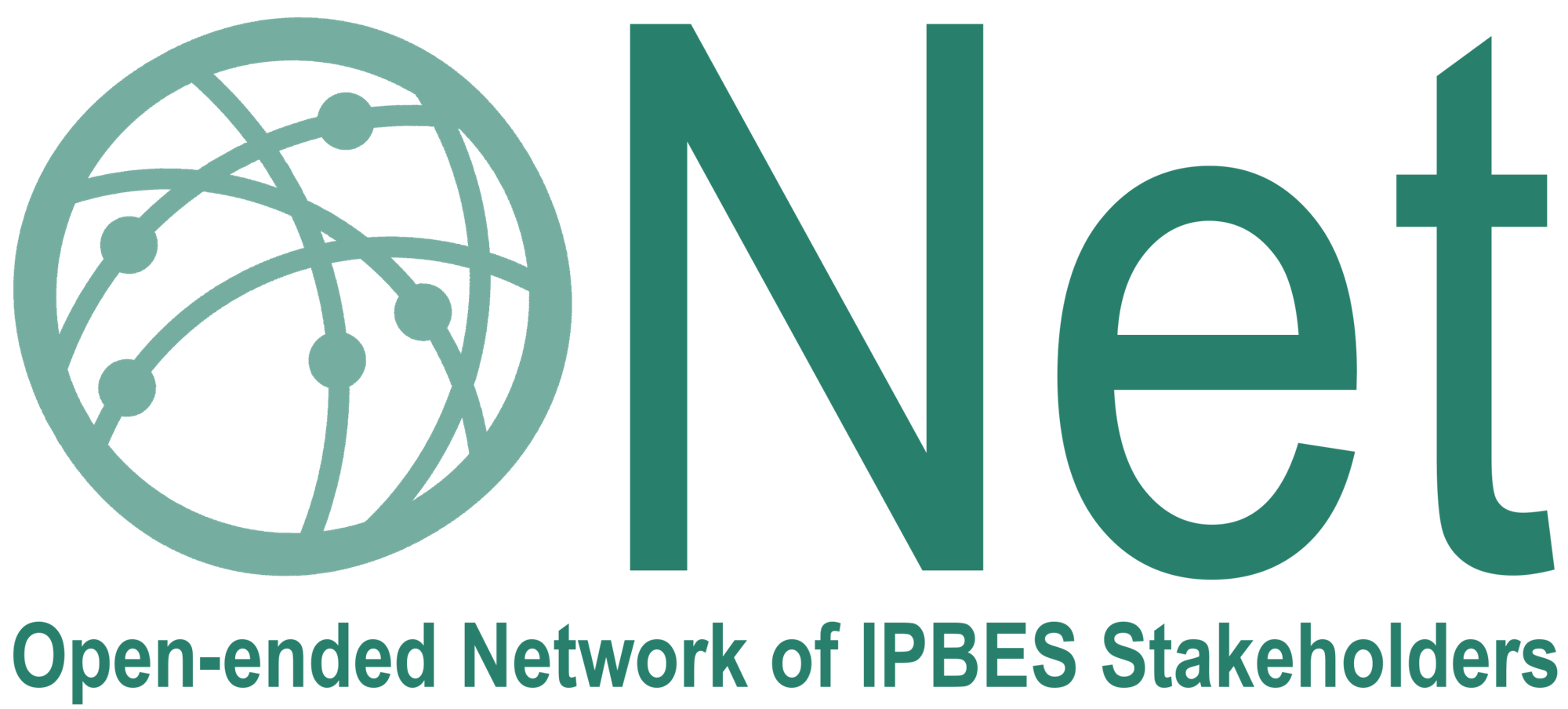Exploring Biodiversity Science and Policy through IPBES
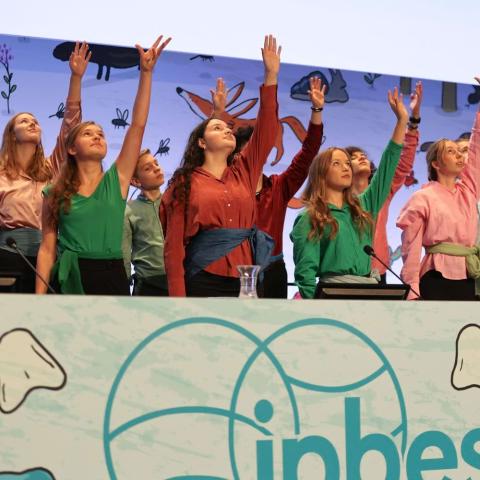
At the IPBES 10 Plenary, ECOLISE became an observer organisation of IPBES, which harnesses the best expertise on biodiversity from across all scientific disciplines and knowledge communities. We believe that community-led initiatives can provide valuable lessons to feed into decisions around biodiversity.
This article was originally published on Communities for Future. Read the original article.
Biodiversity underpins almost every aspect of our lives – producing food, clean water, regulating the climate and controlling disease. Yet biodiversity is being lost faster than at any other point in human history, with one million species of plants and animals threatened with extinction.
What is IPBES?
The Intergovernmental Science-Policy Platform on Biodiversity and Ecosystem Services (IPBES) aims to provide a scientific basis for global decision-making on biodiversity, ecosystems and the benefits they provide to people, as well as the tools and methods to protect and sustainably use these vital natural assets. IPBES does for biodiversity what the IPCC does for climate change.
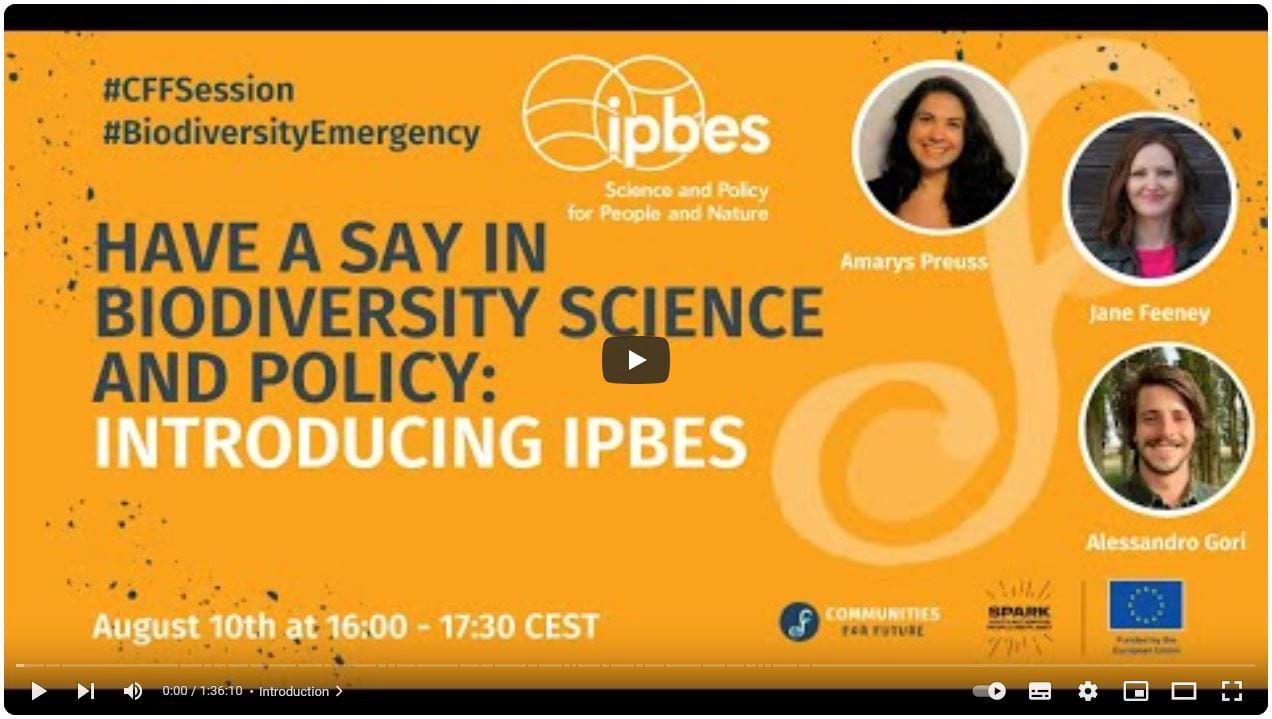
In the August CfF session, Amarys Preuss, from the IPBES Stakeholder Engagement Team, IPBES, Alessandro Gori, agroecologist and assistant coordinator at an Ecosystem Restoration Camp and Jane Feeney, biodiversity researcher and consultant, explored together how communities can contribute to biodiversity science and policy.
As a newly accredited observer of IPBES, ECOLISE joins hundreds of other observer organisations across the world committed to protecting biodiversity. ECOLISE participated as an observer at the IPBES 10 Plenary from 28 August – 2 September 2023, in Bonn, Germany. The IPBES Plenary is composed of Member State representatives. Non-Member States, UN organisations, NGOs, and other organisations and stakeholders.
Braiding Indigenous and Local Knowledge into Biodiversity Science
In his opening speech, Kyle Pows White, US Science Envoy for Indigenous and Local Knowledge, planted the question: Is there a way to imagine the potential of IPBES in instituting indigenous and local knowledge? Where “instituting knowledge” goes beyond consulting or including, to elevating Indigenous Peoples and local communities (IPLC) to be considered as regional actors. He made the point that you can’t be serious about science if scientists are not included. Likewise, how can you be serious about incorporating indigenous and local knowledge if IPLCs are not fully represented? He spoke about braiding indigenous values, processes and methods into the IPBES platform.
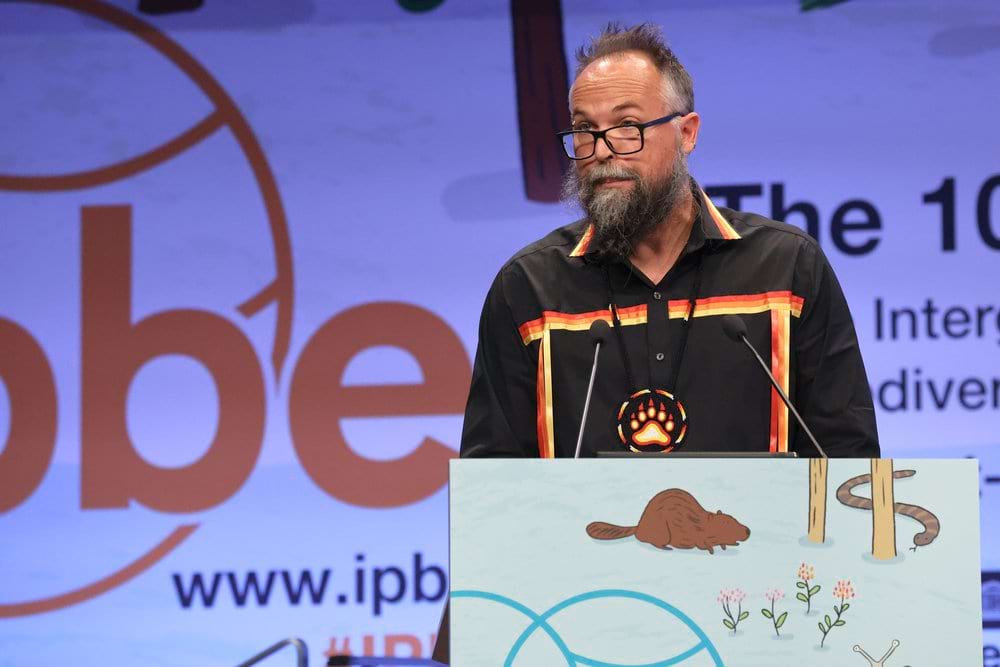
In their opening statement, to which ECOLISE contributed, the Open-ended Network of IPBES Stakeholders (ONet), called on IPBES Member States to “follow the sustainability pathways outlined by the Values Assessment by moving beyond the economic growth paradigm that diminishes biodiversity towards a biodiversity-friendly pathway that enhances overall prosperity”.
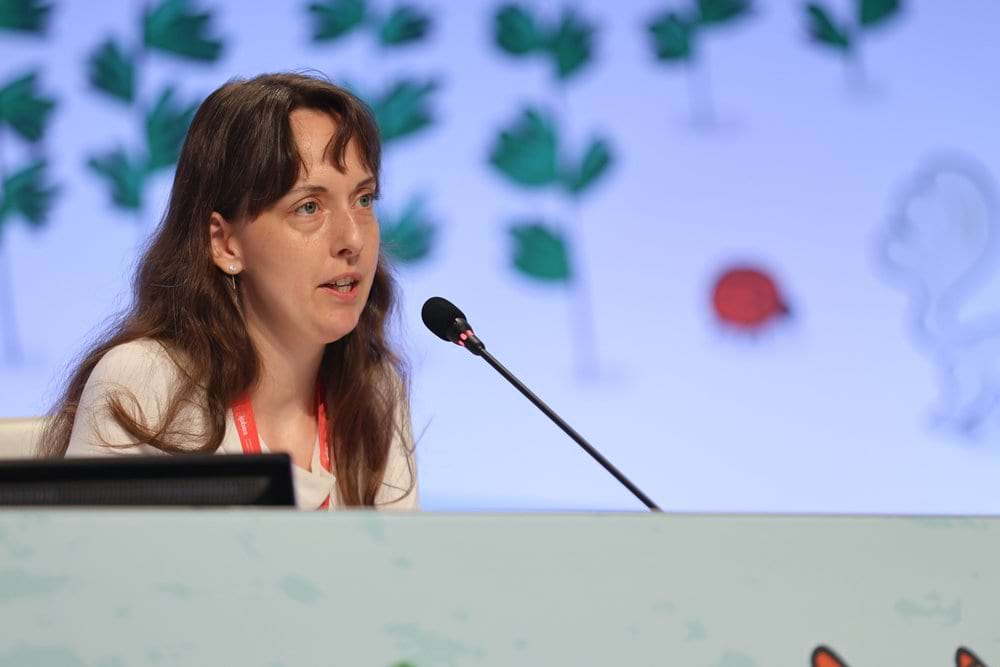
The International Indigenous Forum on Biodiversity and Ecosystem Services (IIFBES) highlighted the need for a changed relationship between humans and nature, placing human rights, including Indigenous rights, at the centre of implementation, monitoring, and reporting of national biodiversity strategies and action plans (NBSAPs).
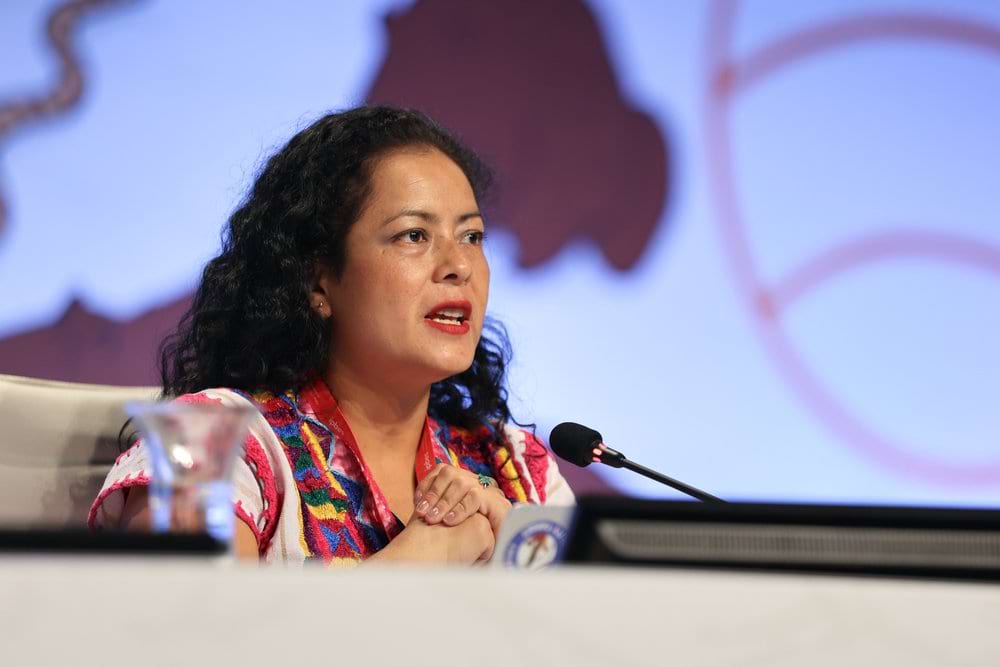
Launch of the Invasive Alien Species Assessment
Invasive alien species are one of the five major drivers of biodiversity loss – alongside changes in land- and sea-use, direct exploitation of species, climate change and pollution. Invasive species are perhaps the least understood of all the drivers, but they affect all of us, no matter what region or ecosystem we live in. Invasive species are animals, plants and other organisms that have been introduced by human activities to new regions.
Governments tasked IPBES to provide the best available evidence and policy options to deal with the challenges of biological invasions. The resulting report, produced by 86 experts from 49 countries, working for more than four and a half years, was approved at the Plenary in Bonn.
Key messages include:
- Invasive alien species are a major threat to nature, nature’s contributions to people, and good quality of life
- Globally, invasive alien species and their impacts are increasing rapidly and predicted to continue rising in the future
- Invasive alien species and their negative impact can be prevented and mitigated through effective management
- Ambitious progress to manage biological invasions can be achieved with integrated governance
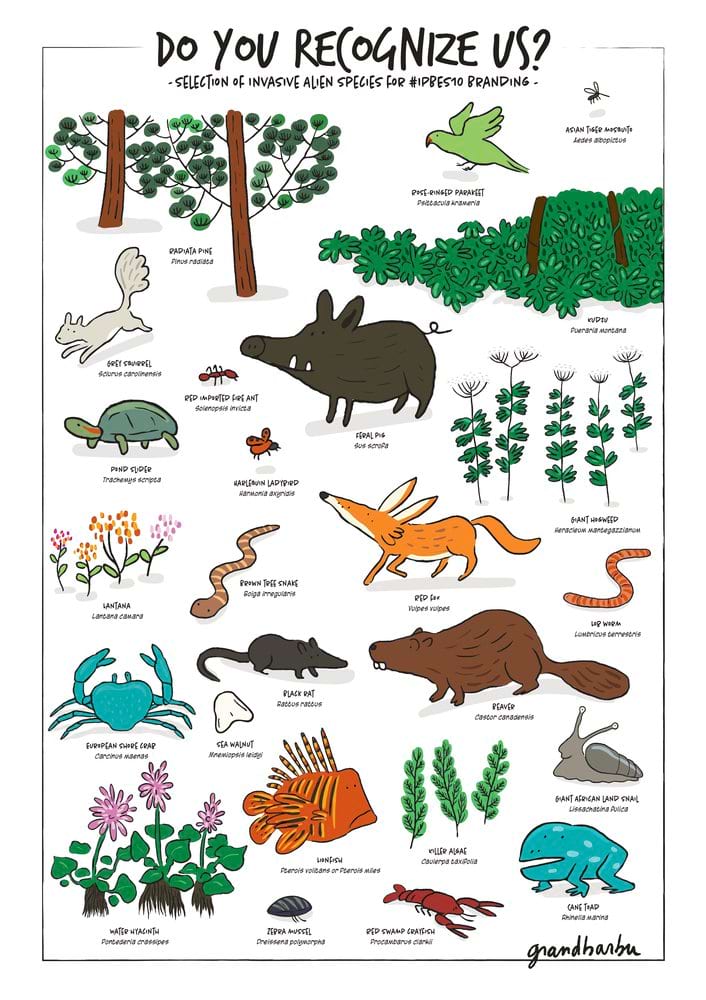
Download the IPBES Invasive Species Poster
Upcoming assessments and priorities for tackling biodiversity loss
During the Plenary, delegates from 143 Member States agreed on the upcoming work programme guiding the next biodiversity science-policy outputs:
- approved the scoping process for a second global assessment of biodiversity and ecosystem services;
- approved the undertaking of a fast-track methodological assessment on monitoring biodiversity and nature’s contributions to people;
- approved the undertaking of a fast-track methodological assessment of biodiversity-inclusive spatial planning and ecological connectivity; and
- decided to determine the exact topic for a further assessment at IPBES 12, following a further call for suggestions.
Delegates elected David Obura (Kenya) as the next IPBES Chair, taking over from Ana María Hernández Salgar. Next year’s plenary will be hosted by Namibia in December 2024.
Later this year, stakeholders will have the opportunity to give input into the two ongoing assessments:
- Nexus assessment: A thematic assessment of the interlinkages among biodiversity, water, food and health in the context of climate change
- Transformative change assessment: A thematic assessment of the underlying causes of biodiversity loss and the determinants of transformative change and options for achieving the 2050 Vision for Biodiversity
Want to know more or get involved?
- Watch our CfF Session: Have a Say in Biodiversity Science and Policy: Introducing IPBES (CfF Session)
- Join ONet: The Open-ended Network of IPBES stakeholders.
- Read IISD’s coverage of IPBES 10
- Invasive Alien Species: Watch the media launch of the IPBES Invasive Alien Species Assessment Report – Download the IPBES Invasive Species Poster – Watch the Teaser Video
- Listen to the IPBES Podcast Nature Insight: Speed Dating with the Future
Header photo by IISD/ENB | Anastasia Rodopoulou: Youth choir’s performance at the opening of the IPBES 10 plenary.
